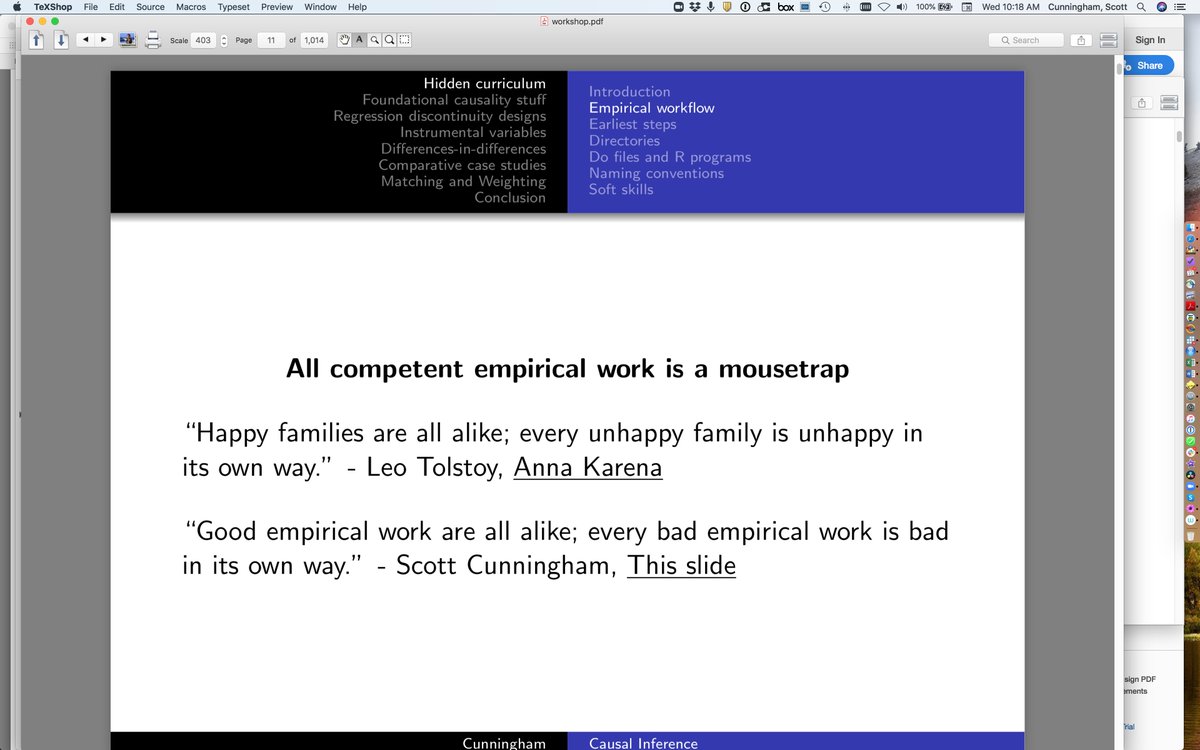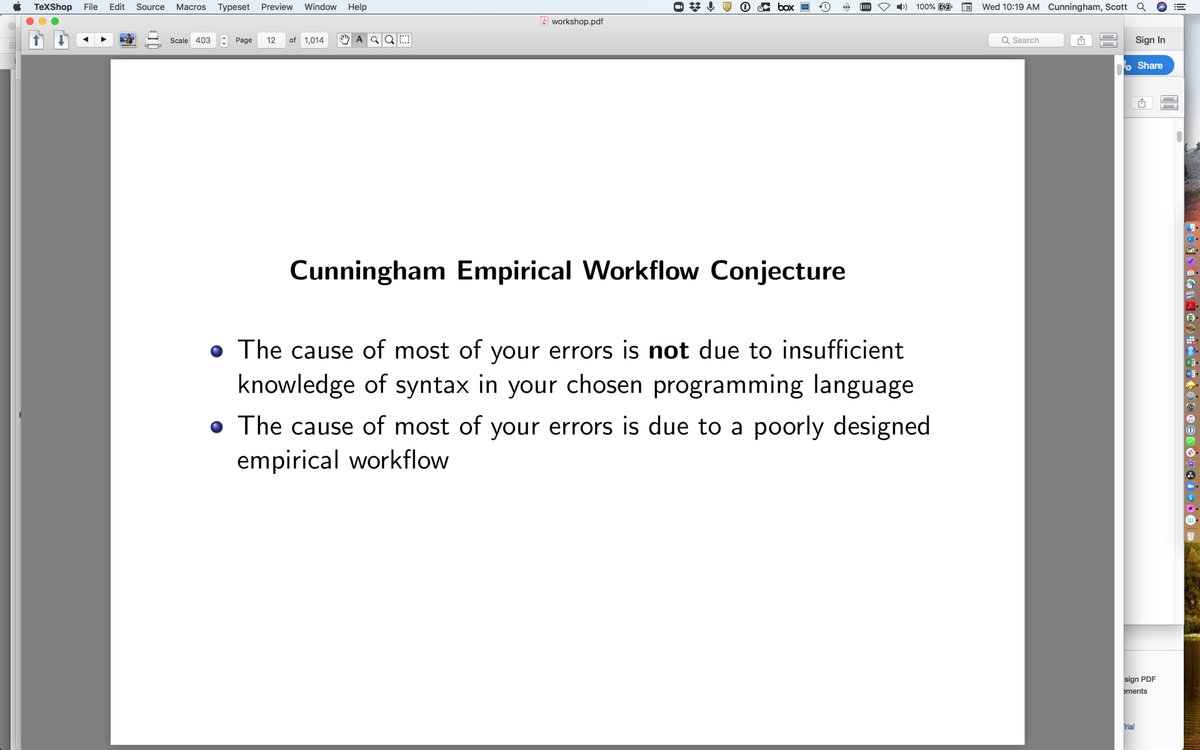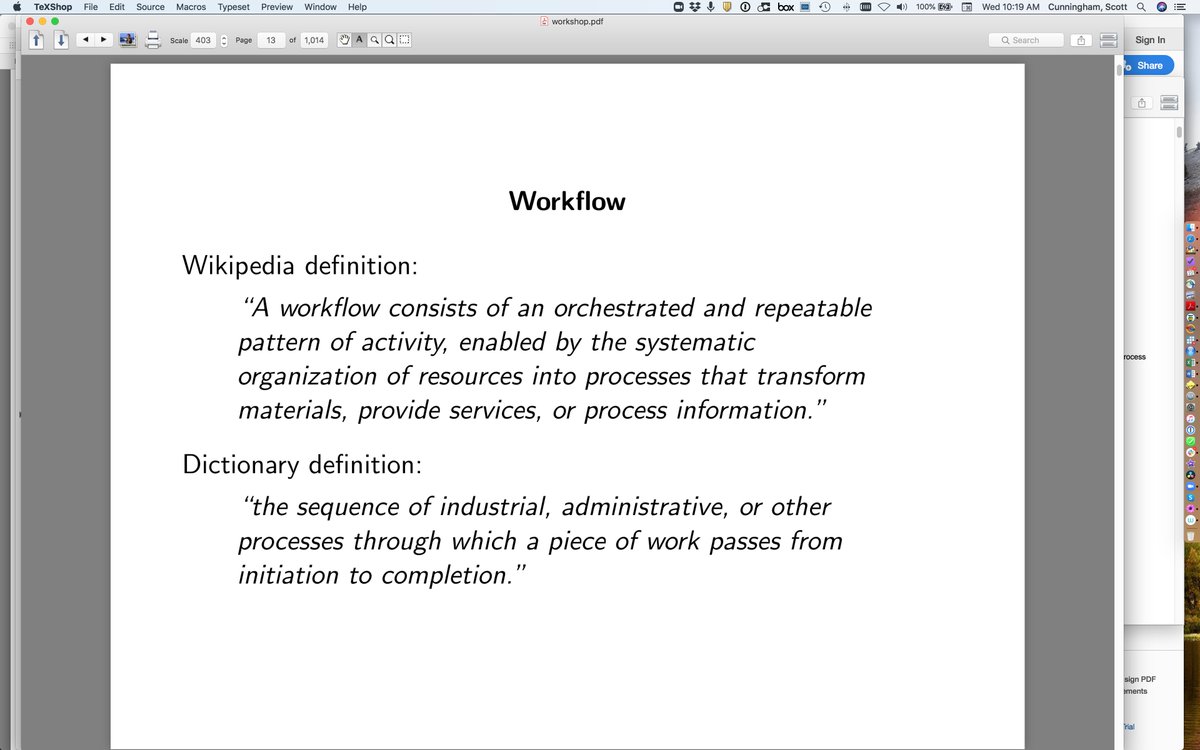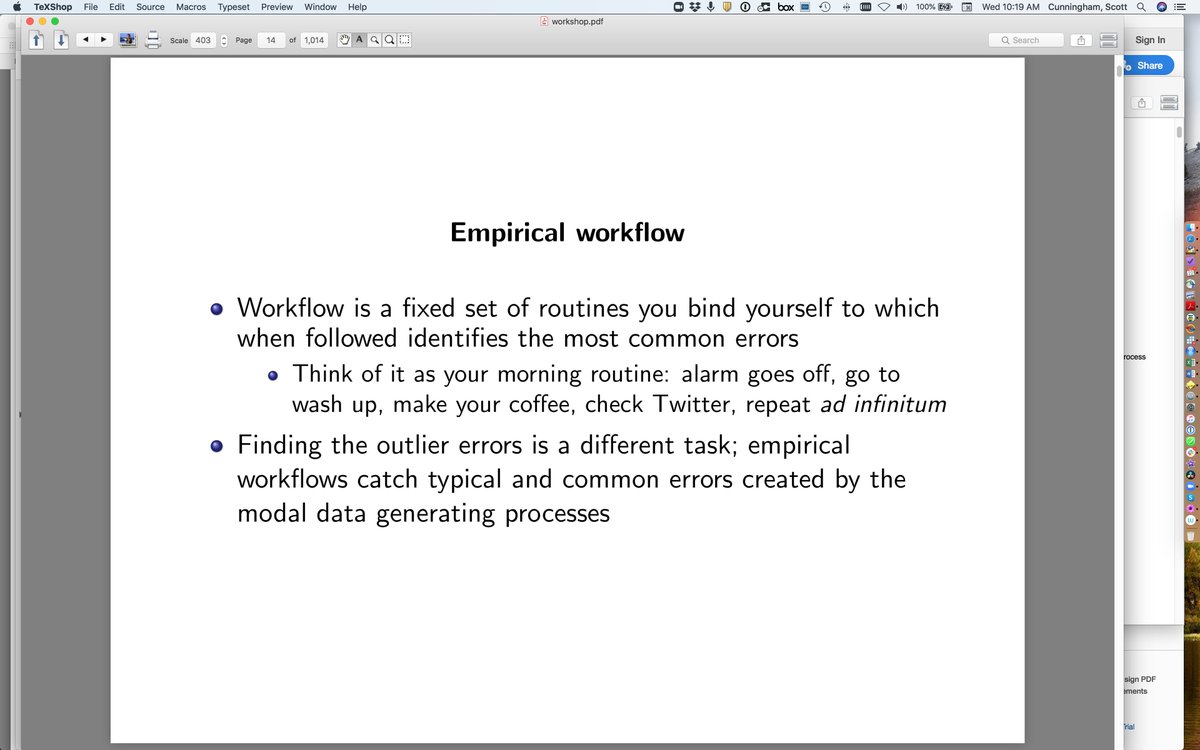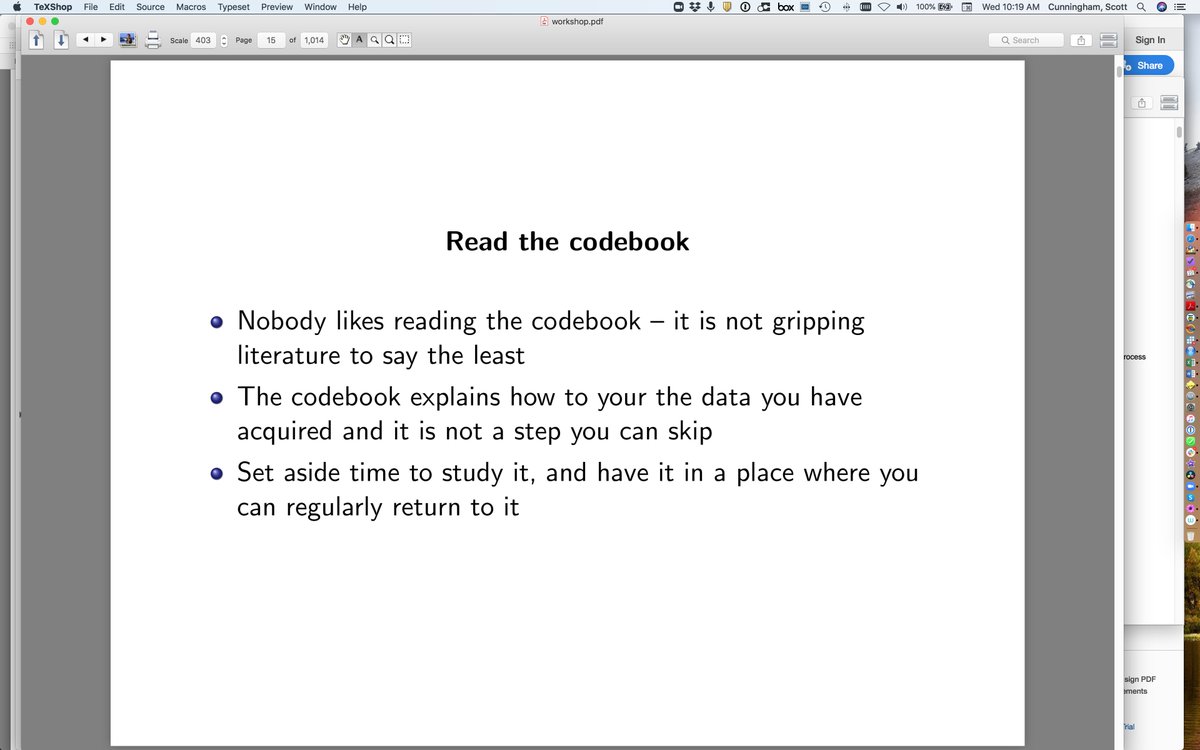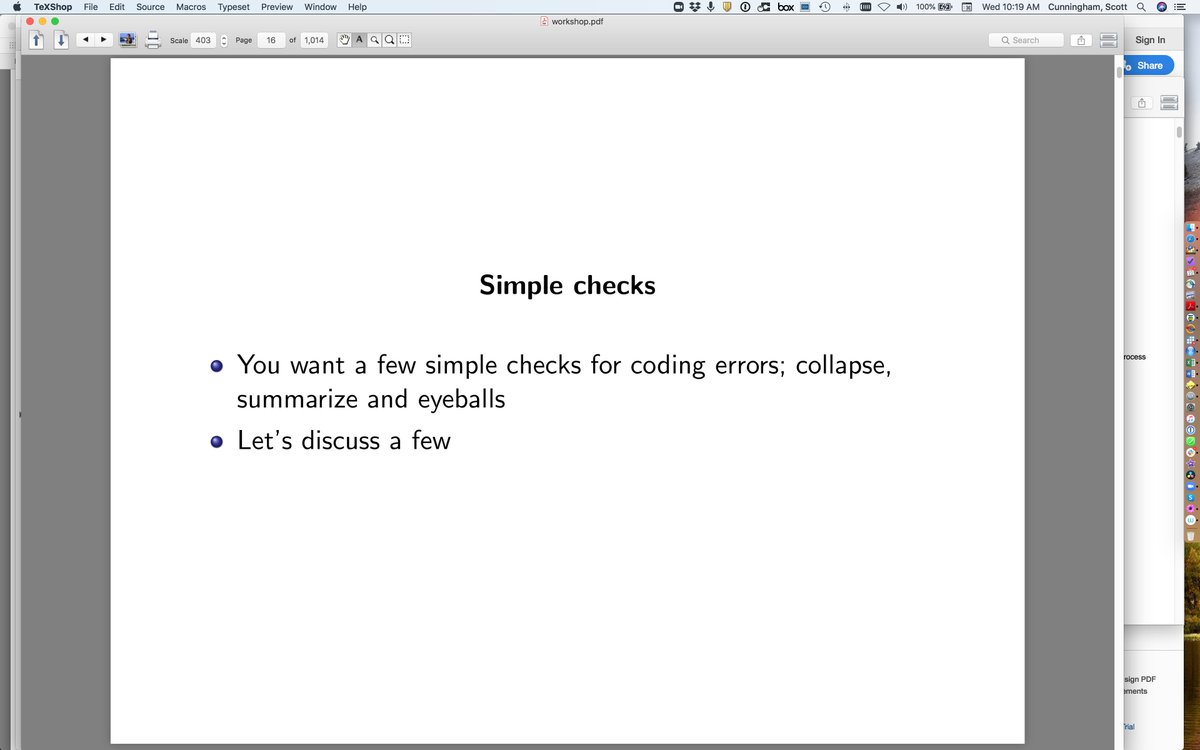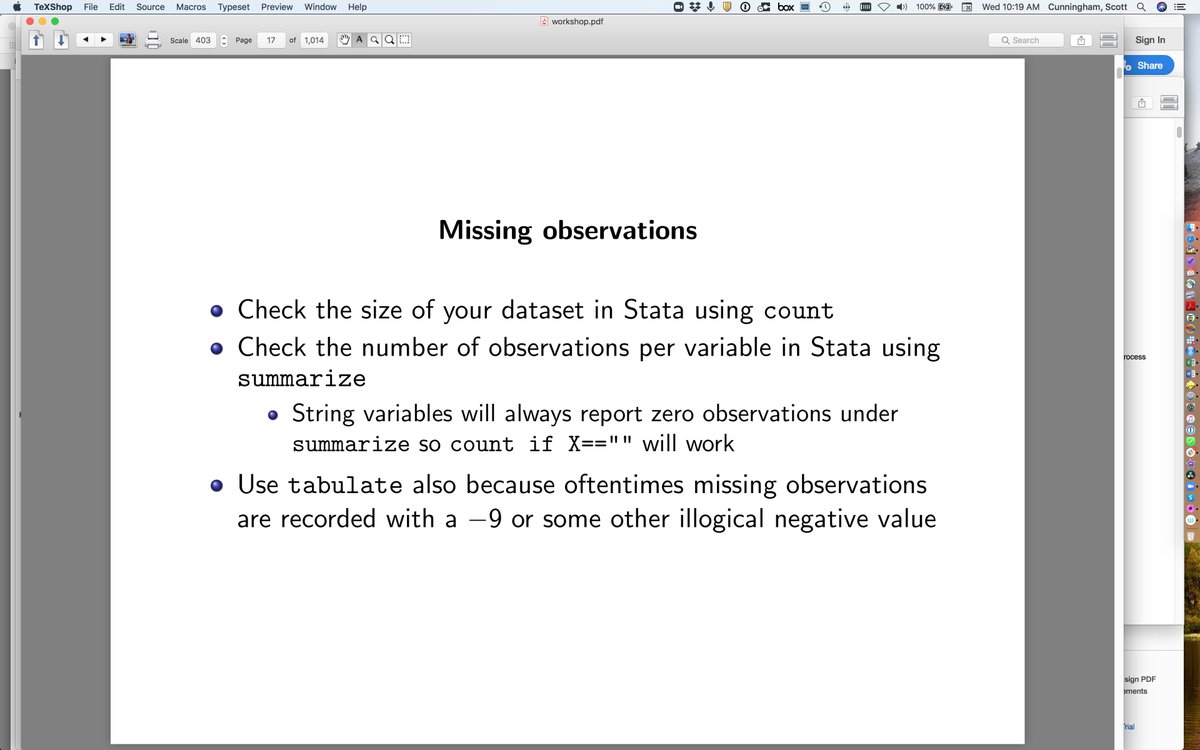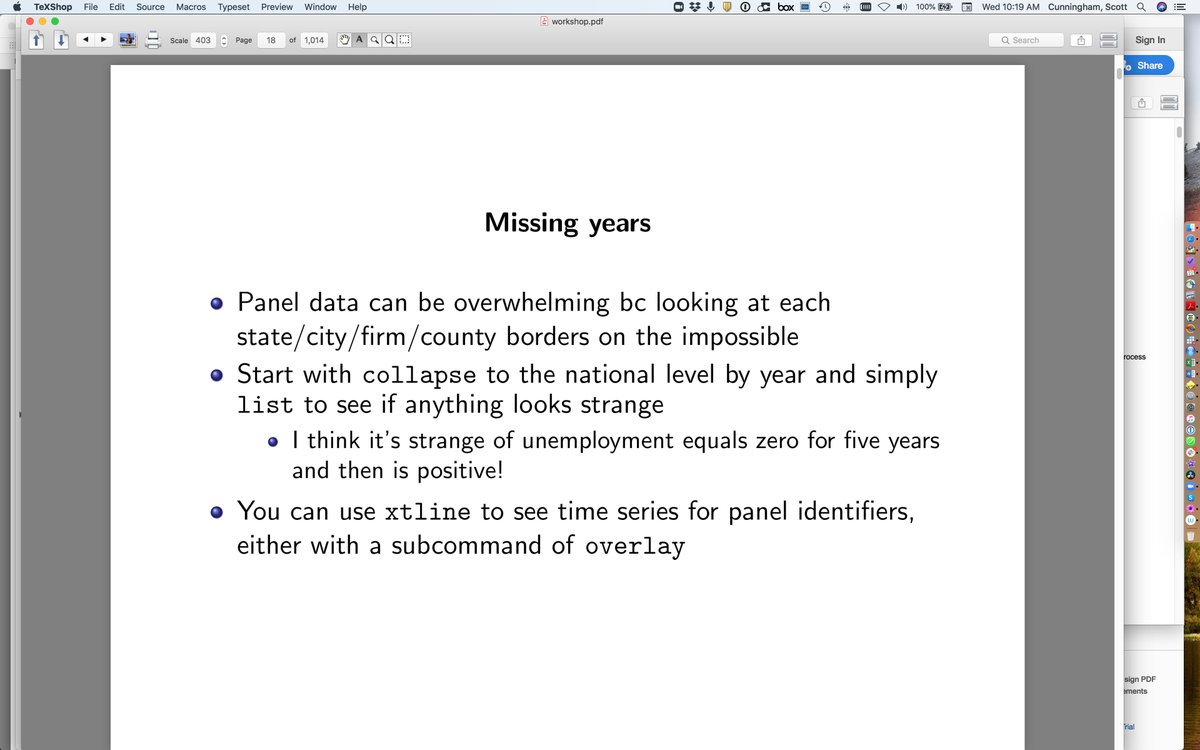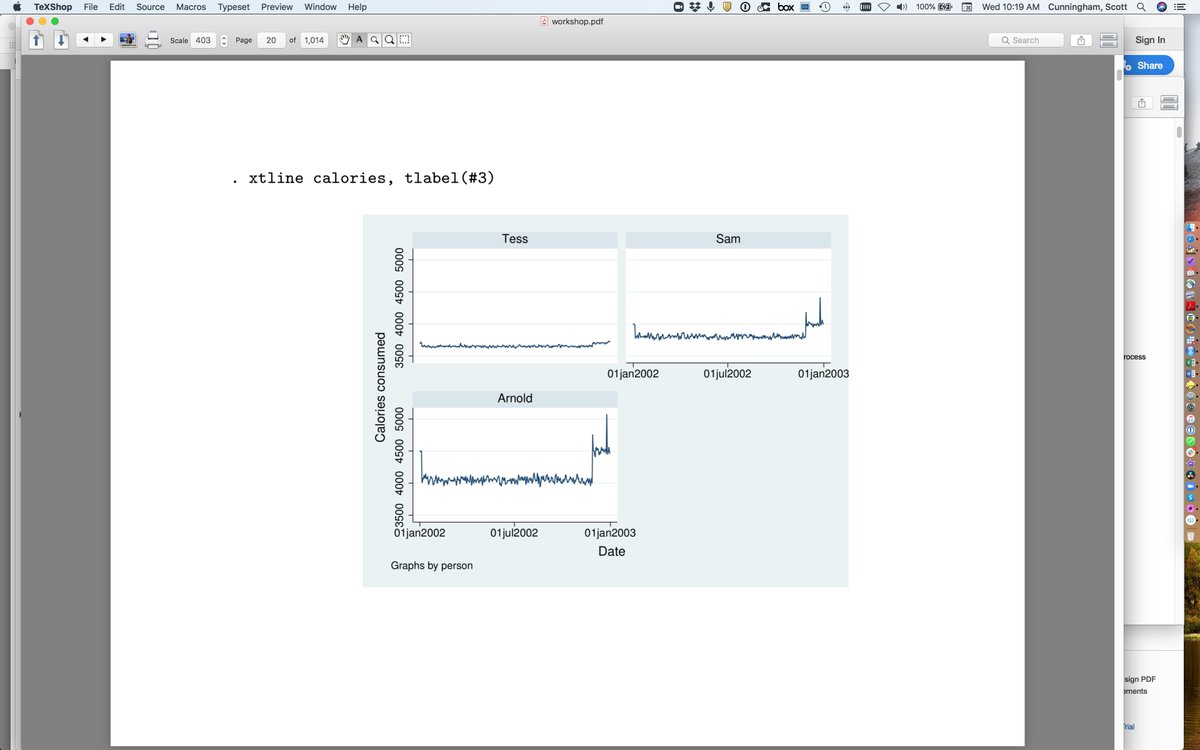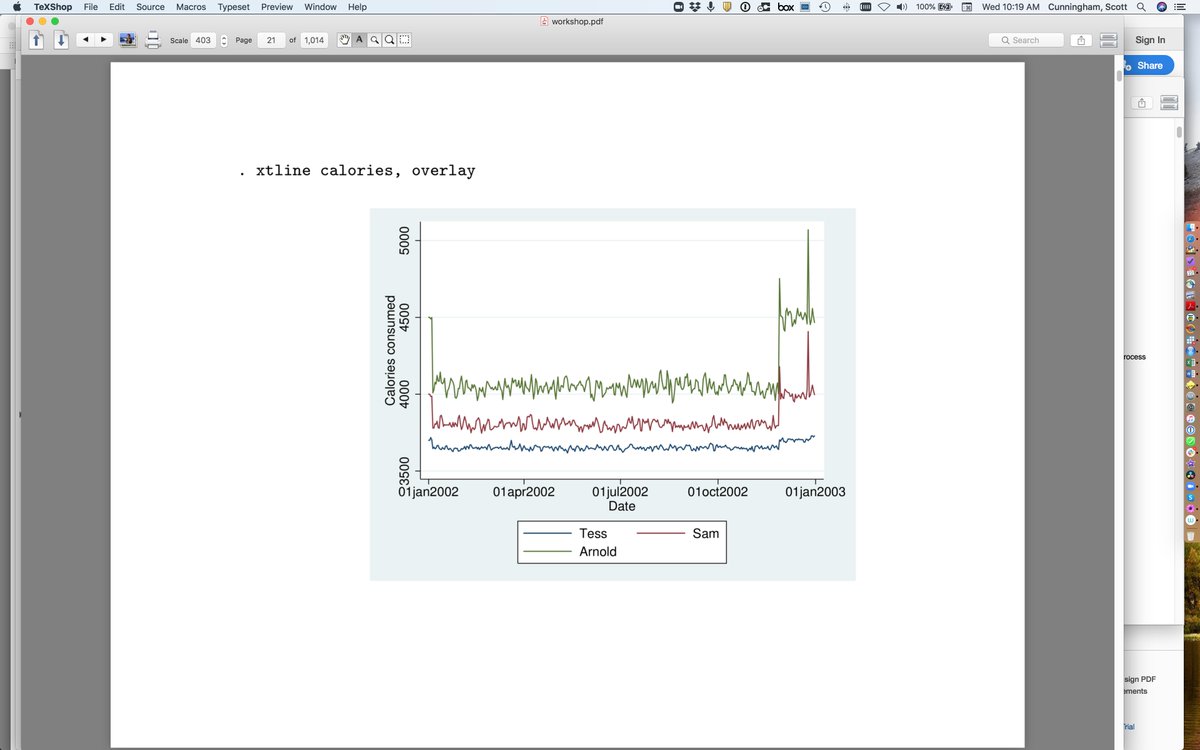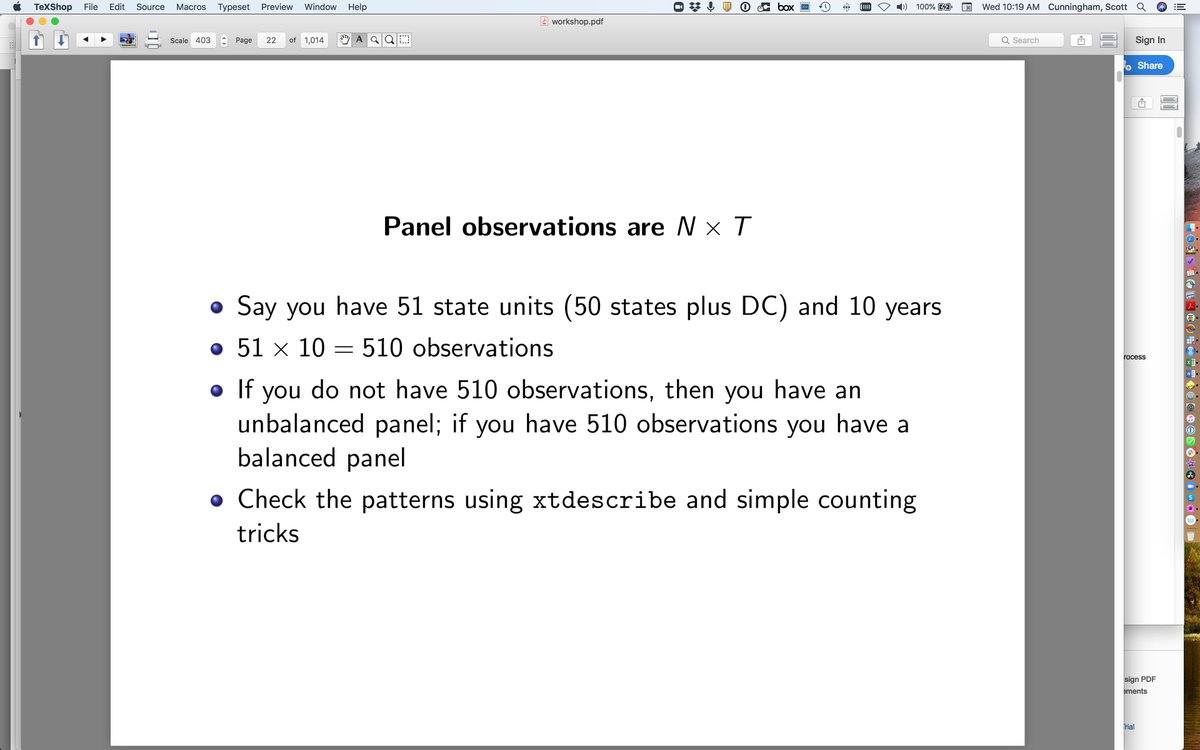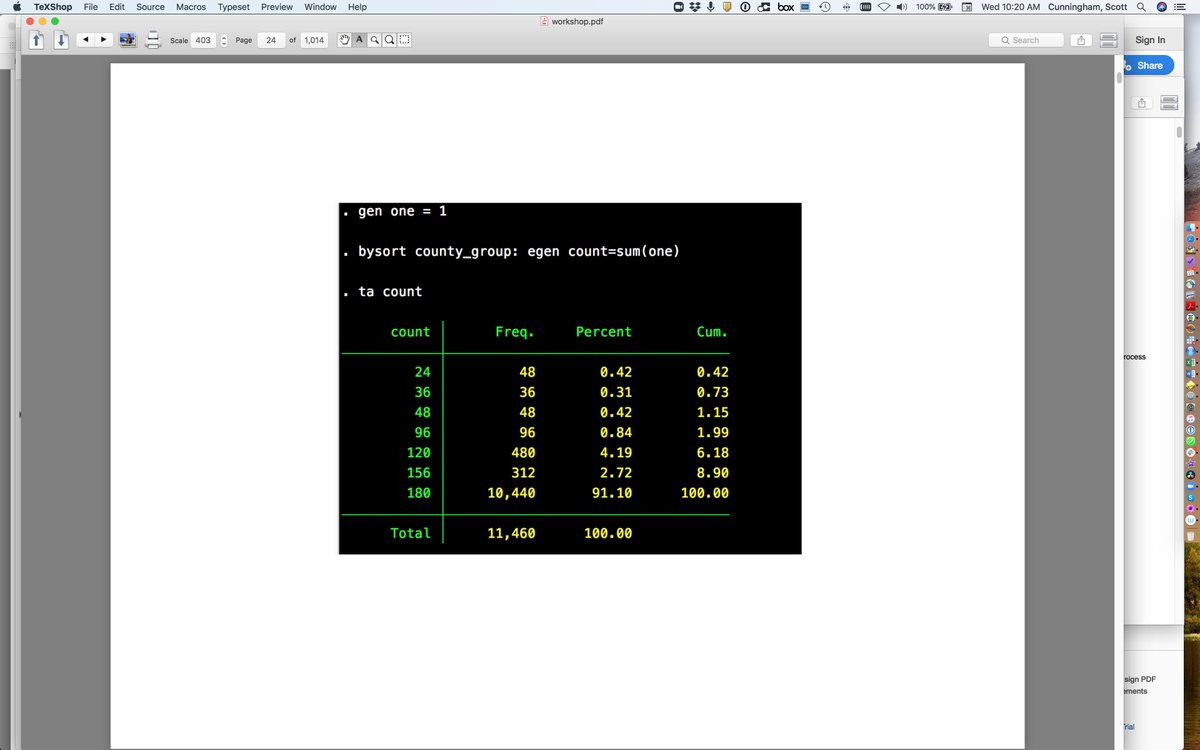I& #39;ve had this lecture called "hidden curriculum" that I usually lead with in my workshops. It& #39;s the stuff we don& #39;t learn which is central to 1) empirical work and 2) being an academic researcher. I am adding to it this morning and wanted to check what I left out. 1/n
I organize the lecture around the idea of an "empirical workflow" which i define as a repeated set of steps you undertake consistently when first encountering data. I argue here that workflow catches typical errors in the & #39;modal data generating process& #39; and propose simple steps 2
First, going off @LaurawherryR , and I suggest that @graykimbrough is a model of this, read the codebook. If a codebook didn& #39;t come with the data, write them back and request it. If they don& #39;t have one, make appointment to discuss basic questions with them. 3/n
Then it comes down to suggestions. I focus on a few things. First, I focus on missing observations. People should know they have missingness, particularly if they don& #39;t see it coming. So simple diagnostics for checking for missingness - summarize, collapse, time series, tab. 4n
Then I give some examples of what I mean -- collapsing to find missing observations, using -xtline- for panel datasets with and without overlay. more will come to me today I& #39;m sure. 5/n
Then I suggest some simple diagnostics for checking for missingness in panel datasets -- the unbalanced panel. How do you spot imbalanced panels? One you can just count and deduce. Two, you can use -xtdescribe-. Three you can use tabulate once you counted the no. panel units
And then after talking to @_RebecaThornton about it the other day, I was thinking it& #39;s important to pull the audience back by the end of the sub-lecture and remind them of the big picture. As the big picture drives early data choices. Also a Mark Hoekstra quote I always think of
I left out histograms, box plots, and more visuals, so I& #39;ll add that. That extends from the bullet point about summarizing. But the goal I& #39;m thinking is to create like a checklist, and the checklist is a component of the "empirical workflow". 8/n
Without getting into the weeds yourself, what do you see as "big picture, basic steps, checklist" like things. Imagine you are talking to someone who is an RA for the first time, in other words. What is your checklist? I& #39;m thinking this is "intermediate steps" b4 analysis. 9/n

 Read on Twitter
Read on Twitter